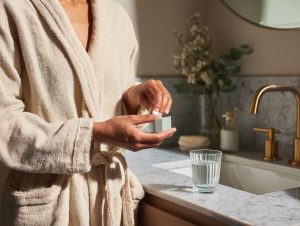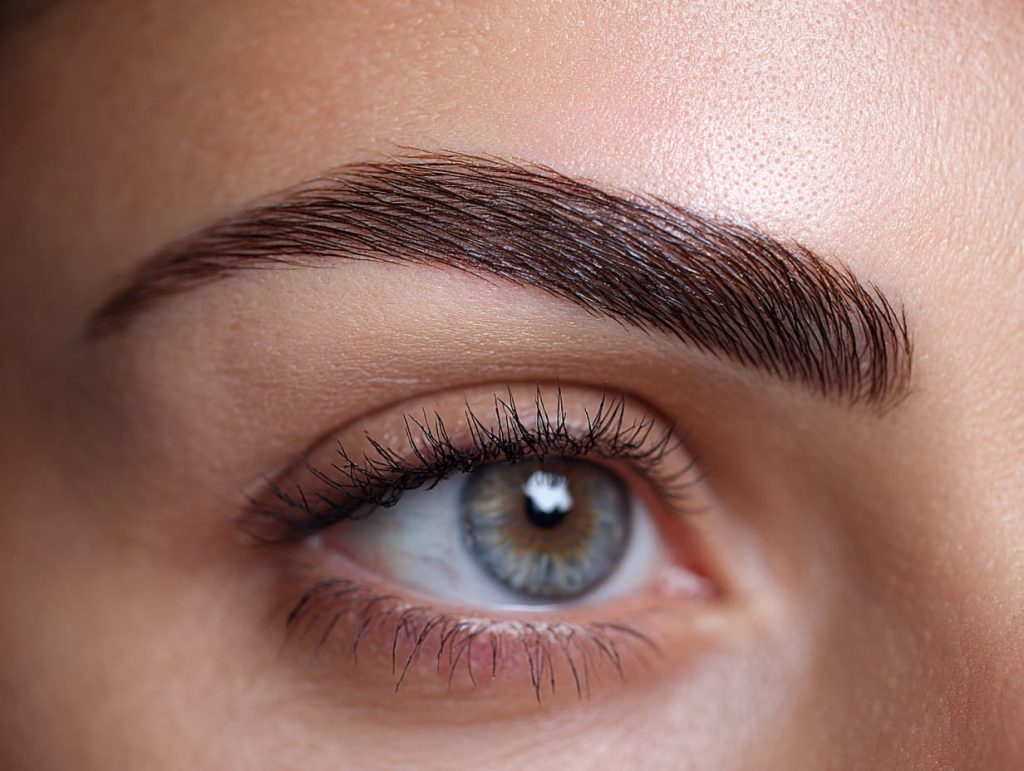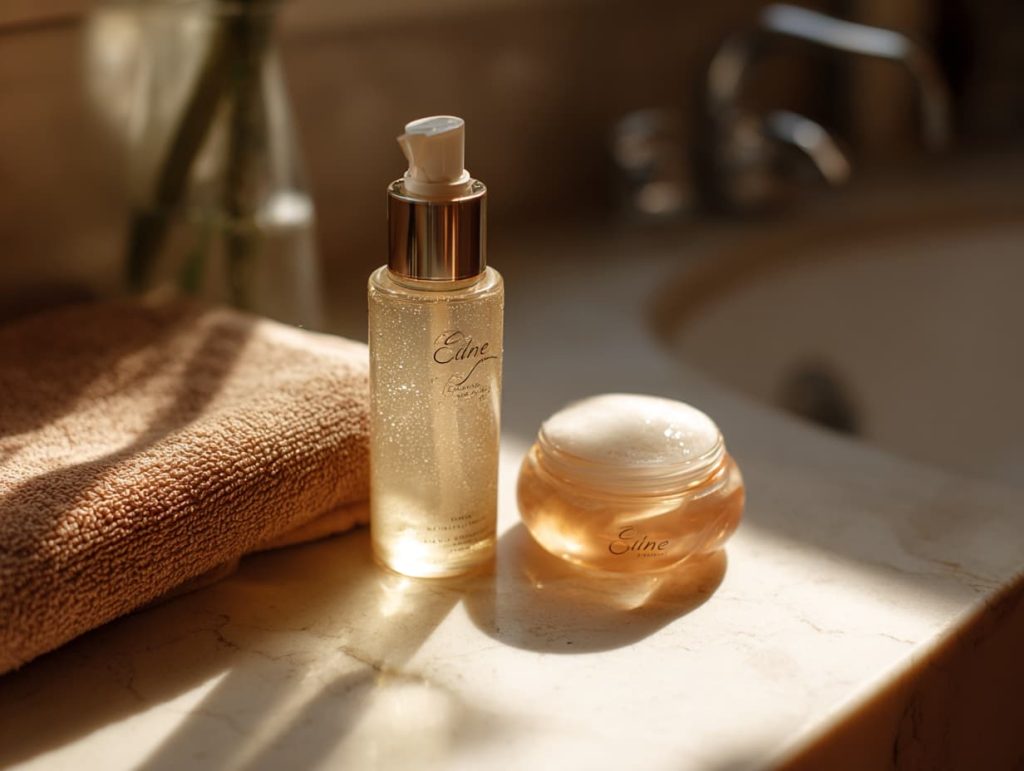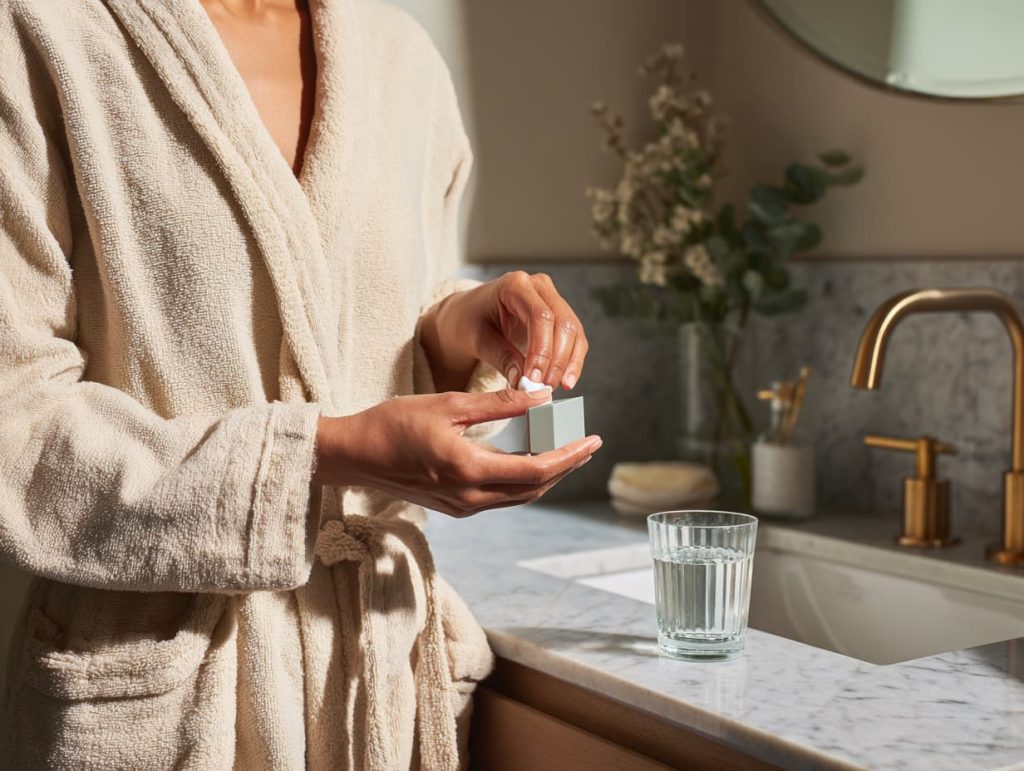
Eyelash Extensions at Home: A Complete Expert Guide
- 8 Minutes
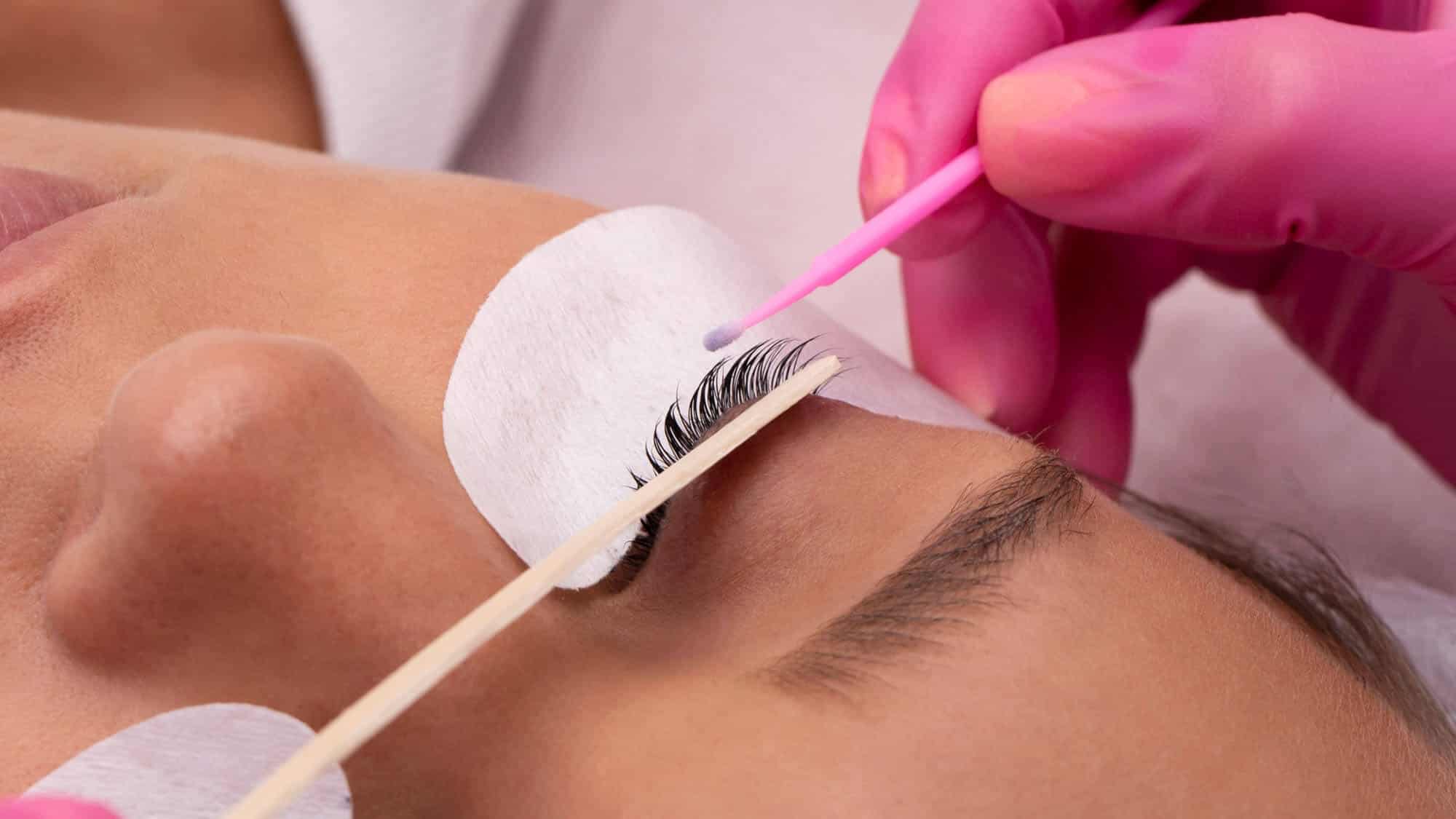
- Why Choose Applying Eyelash Extensions at Home?
- DIY Lash Extensions: Step-by-Step Application
- Step 1: Preparing your lashes
- Step 2: Choosing and isolating lash clusters
- Step 3: Applying adhesive correctly
- Step 4: Proper lash placement technique
- Step 5: Drying and setting the extensions
- Choosing the Right At-Home Lash Extension Kit
- Lash Types: Cluster, Strip, and Individual
- Materials and Finishes
- Glue and Tools
- Safety Considerations for At-Home Extensions
- Get the Lash Look You Deserve | Effortless, Beautiful, and Hassle-Free
- 4 Common Mistakes to Avoid When Applying Lash Extensions at Home
- 1. Using too much adhesive
- 2. Skipping lash preparation
- 3. Placing lashes on the skin
- 4. Overlapping or misaligning lashes
- 4 Tips to Make Your Lashes Last Longer
- 1. Avoid water and steam in the first 24 hours
- 2. Sleep on your back or side
- 3. Clean lashes gently
- 4. Avoid oil-based products
- Strip Lashes vs. Extensions: Which Works Best at Home?
- Strip Lashes for Quick Glam
- FAQ
- Are at-home lash extensions safe?
- Explain how to apply cluster lashes at home?
- How long do DIY lash extensions last?
- What tools do I need for at-home extensions?
- Can I damage my natural lashes with at-home kits?
Dreaming of full, fluttery lashes without spending hours in a salon? At-home eyelash extensions have become the ultimate DIY beauty trend, giving you salon-quality results from the comfort of your mirror.
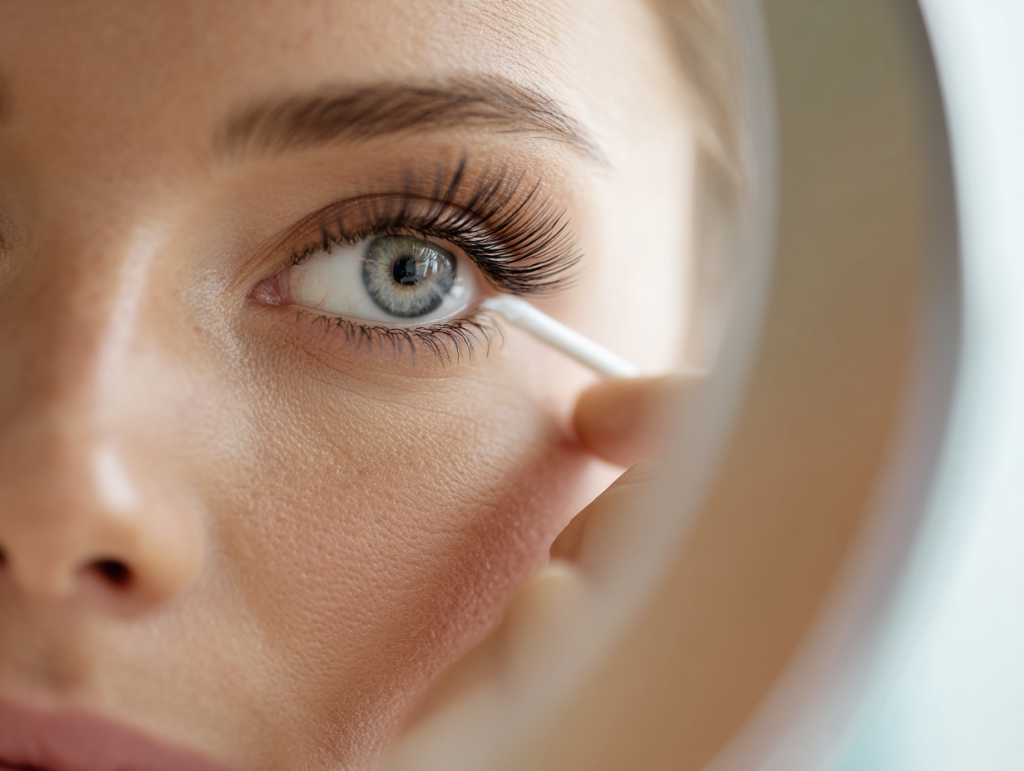
With the right at-home lash extension kit and expert guidance, you can achieve longer, fuller lashes in minutes while saving time and money. The process of eyelash extensions at Home is simple:
- Prepare your natural lashes
- Choose and isolate lash clusters
- Apply adhesive correctly
- Position them for a seamless blend
- Let them dry and set properly
Using high-quality adhesive and proper techniques ensures your lashes look natural and last longer without damaging your natural lashes. With expert tips on preparation, application, and aftercare, you can enjoy beautiful, long-lasting lashes that enhance your look every day.
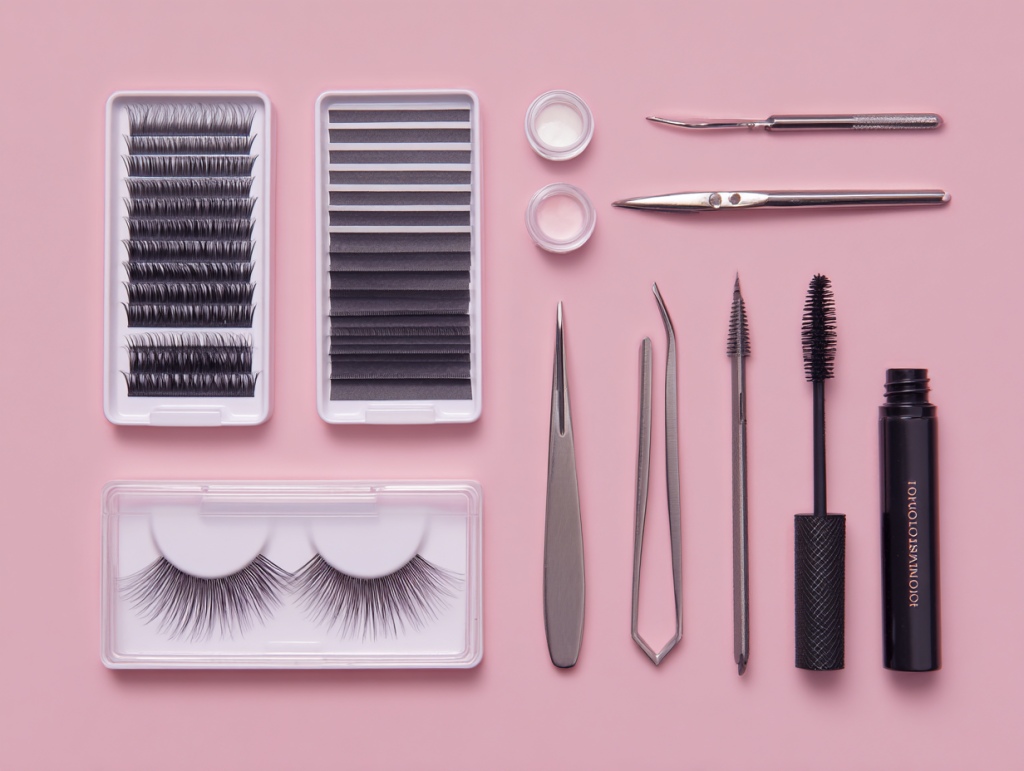
Why Choose Applying Eyelash Extensions at Home?
DIY eyelash extensions are popular because they offer flexibility, affordability, and control over your look. Professional lash appointments can be costly and require frequent touch-ups. At home, you decide when and how to apply temporary lash extensions, saving money and fitting beauty routines into your schedule.
You can customize your look by choosing from cluster lashes, strip lashes, or individual extensions and materials like synthetic, mink, or silk finishes. With practice, you can create everything from a natural day look to dramatic evening volume.
| Pros | Cons |
| Cost-effective compared to salon services | Requires practice and steady hands |
| Flexible timing — apply anytime | Risk of uneven application for beginners |
| Customize style, length, and material | May cause irritation if glue or products are misused |
| No need for frequent salon appointments | Shorter lifespan compared to professional extensions |
| Privacy and comfort of doing it at home | Limited access to advanced techniques and tools |
| Easy to experiment with different looks | Potential for natural lash damage without proper care |
For many, at-home lash extensions provide a safe, convenient way to enhance their eyes, especially when you follow expert advice to avoid discomfort or damage. Curious about why do my eyelash extensions hurt or wondering is lash extension harmful? Proper kit choice and technique are key to avoiding these issues.
DIY Lash Extensions: Step-by-Step Application
Applying DIY lash extensions at home can give you a professional, customized lash look without salon visits. With the right at-home lash extension kit and careful technique, you can achieve long-lasting, natural results. Follow these step-by-step instructions to ensure safe application and beautifully enhanced lashes every time.
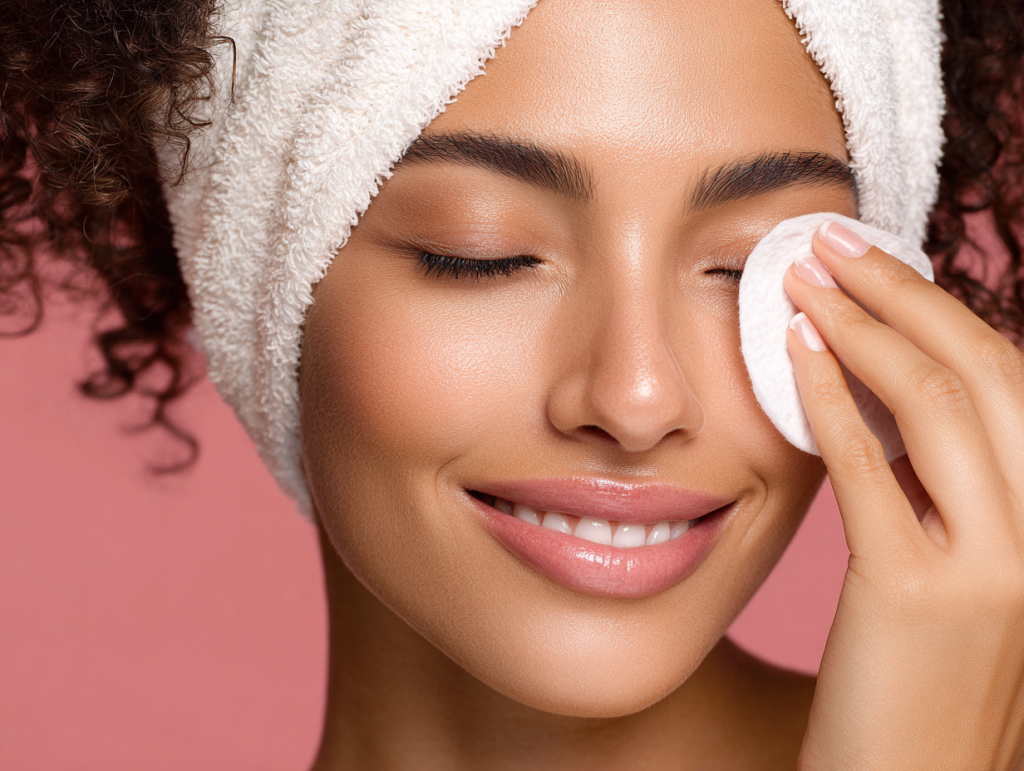
Step 1: Preparing your lashes
Cleanse your natural lashes with an oil-free makeup remover to remove dirt and oils. Dry thoroughly, then brush to separate lashes. Proper preparation ensures temporary lash extensions adhere correctly and last longer without clumping or falling off prematurely.
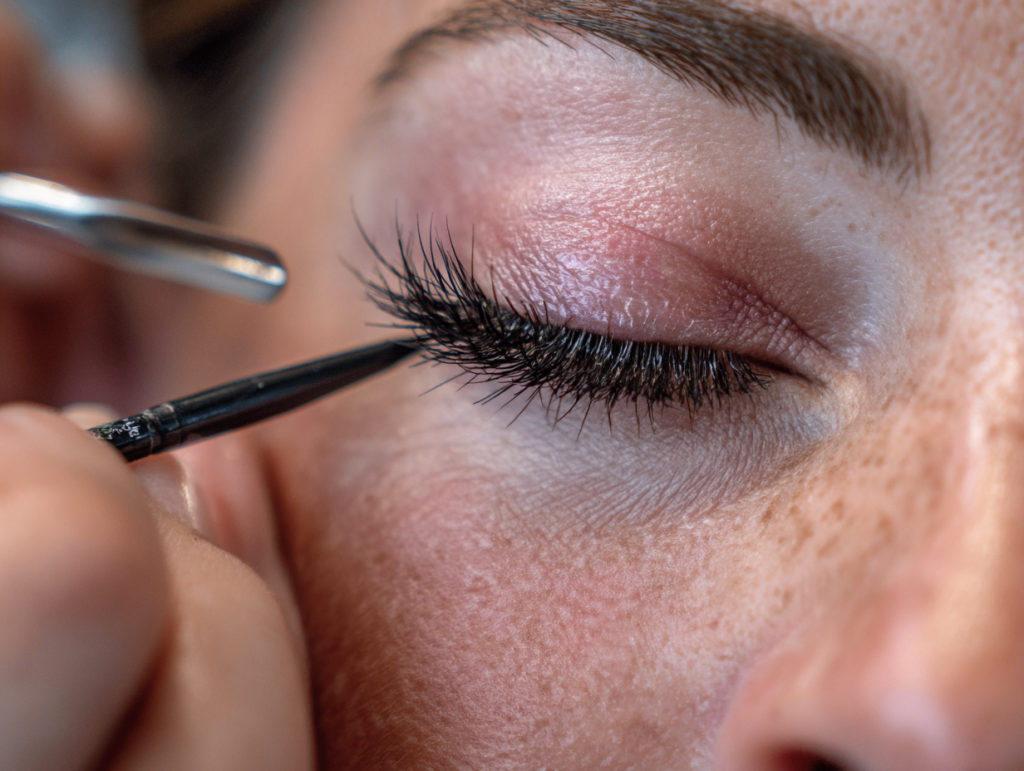
Step 2: Choosing and isolating lash clusters
Select cluster lashes or individual lashes based on your desired volume. Use precision tweezers to isolate small sections of natural lashes for proper placement. Isolation prevents sticking and helps create a neat, professional look.
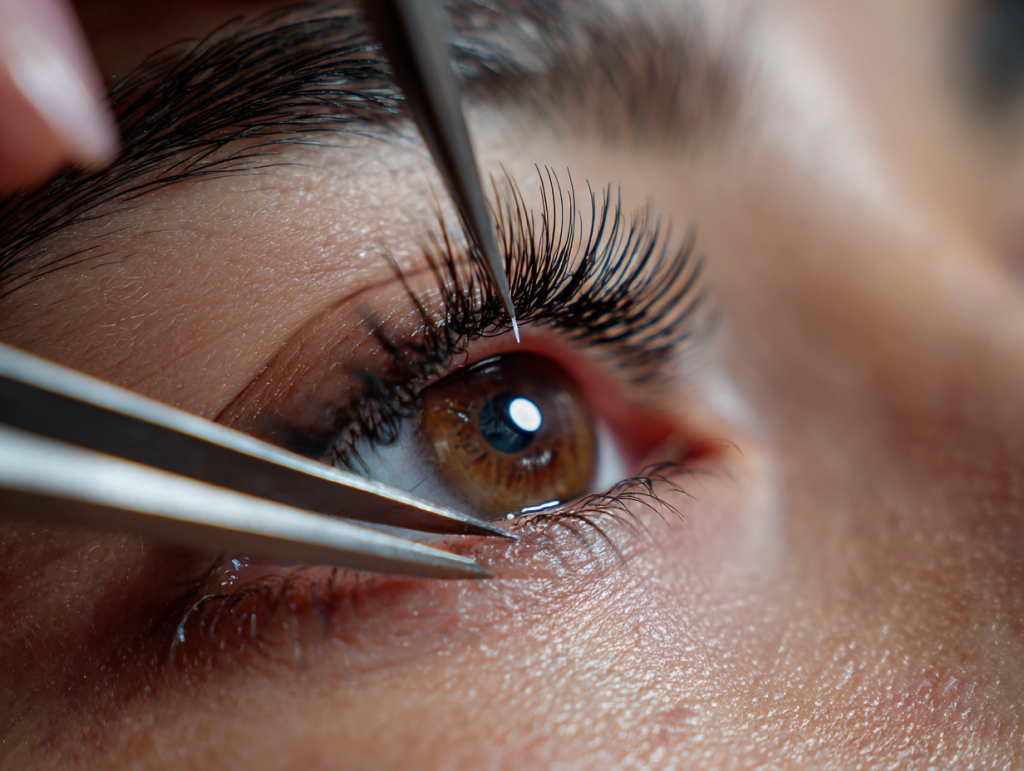
Step 3: Applying adhesive correctly
Dip the base of each lash cluster into a small amount of high-quality adhesive. Avoid excess glue to prevent clumping. Using DIY-specific lash glue ensures a secure hold while being gentle on your natural lashes, reducing damage or irritation.
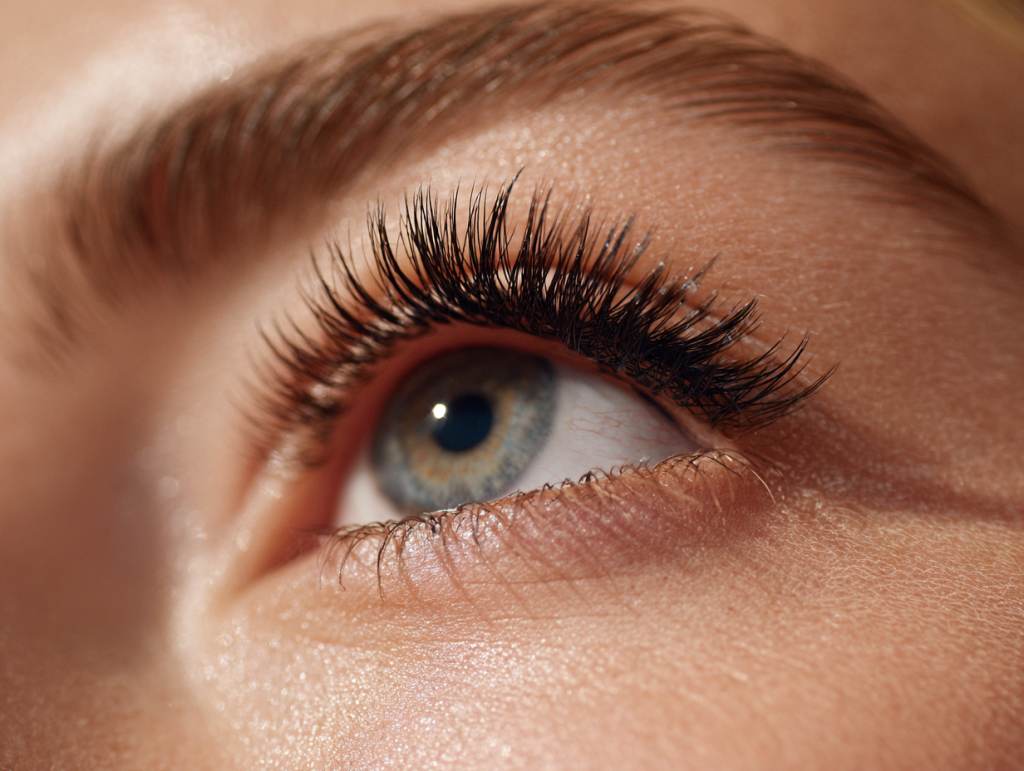
Step 4: Proper lash placement technique
Position the lash cluster slightly above the natural lash line and press gently to attach. Avoid skin contact to prevent discomfort. This placement technique creates a seamless blend, making DIY lash extensions look natural and salon-like.
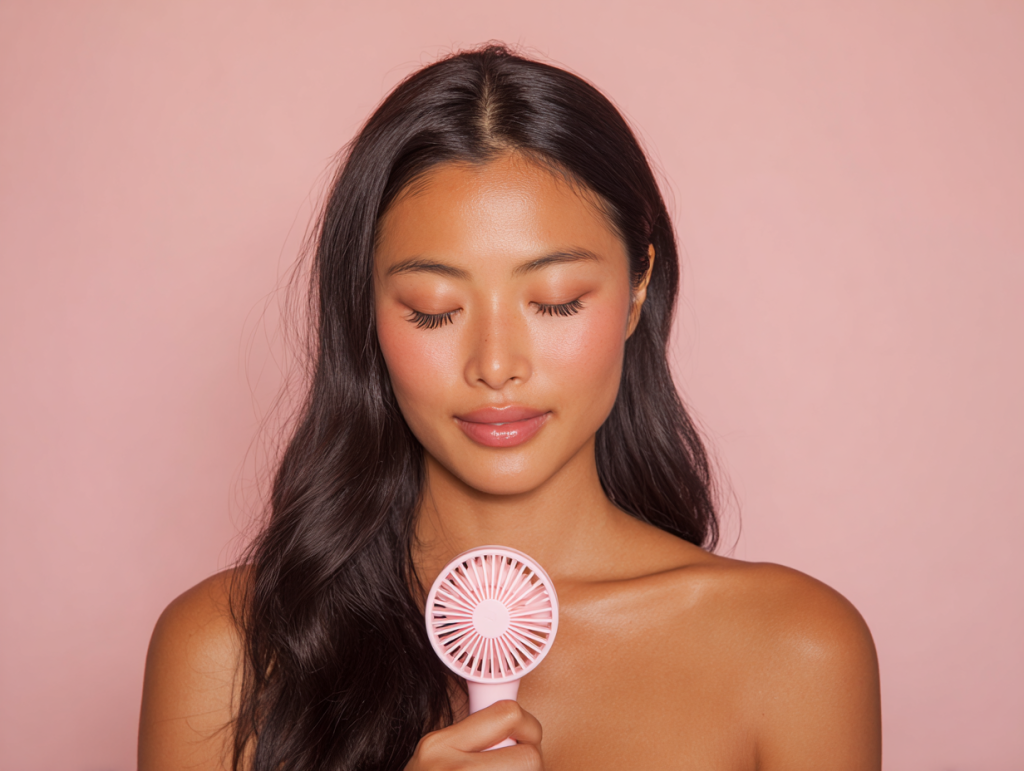
Step 5: Drying and setting the extensions
Allow the adhesive to fully dry before touching or applying makeup. Use a handheld fan or air-dry for a few minutes. Proper drying and setting help at-home lash extensions stay intact longer, maintaining curl and volume.
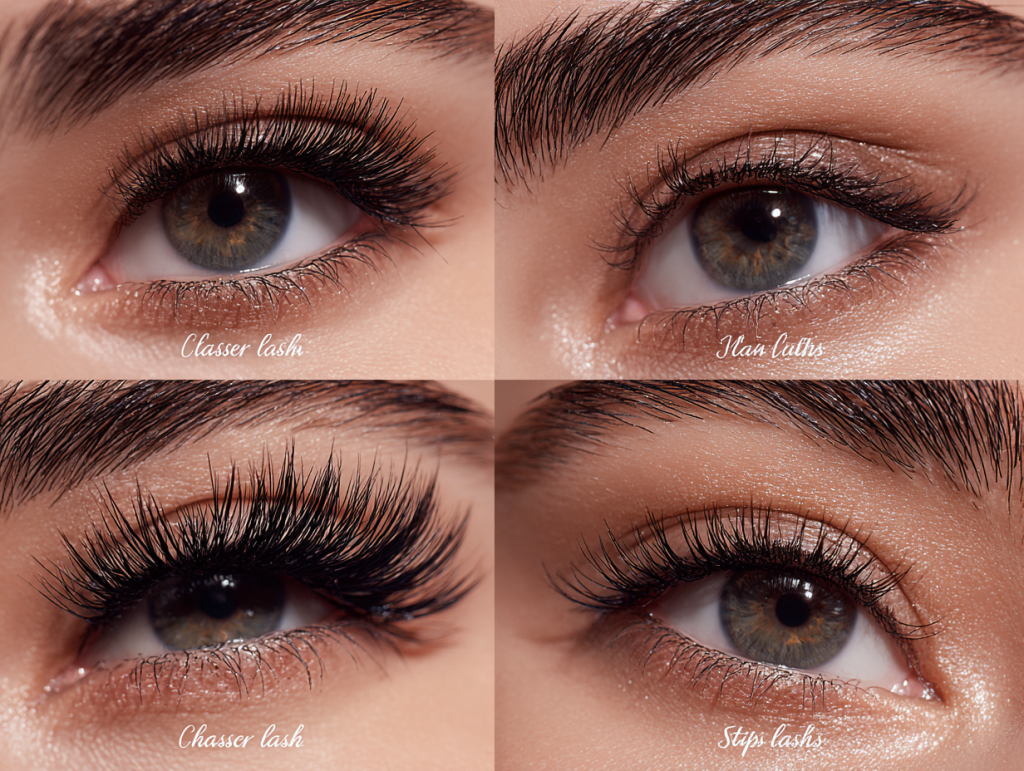
Choosing the Right At-Home Lash Extension Kit
Selecting a high-quality at-home lash extension kit is crucial for great results. Here’s what to consider:
Lash Types: Cluster, Strip, and Individual
- Cluster lashes: Great for quick volume and beginners.
- Strip lashes: Offer full coverage, easy to apply and remove but are temporary.
- Individual lash extensions: Provide a natural, customized look with semi-permanent results — ideal for skilled DIY users.
Materials and Finishes
- Synthetic lashes: Affordable and bold, perfect for dramatic looks.
- Mink lashes: Soft, lightweight, and natural-looking.
- Silk lashes: Balance of volume and comfort.
Glue and Tools
- Use gentle, fast-drying lash adhesive designed for at-home use to minimize irritation.
- Kits should include precision tweezers, lash applicators, and safe glue remover for smooth application and protection of your natural lashes.
Safety Considerations for At-Home Extensions
While DIY lash extensions offer convenience and savings, safety should be your top priority. Following best practices protects your natural lashes and prevents irritation or infection.
- Patch test the adhesive
Do a patch test on your wrist or behind your ear before applying. Wait 24 hours to check for redness, itching, or swelling.
- Avoid contact with eyes
Place clusters above lash line, never touching eyelids or eyes. Use a mirror, proper lighting, and precision tools for safe control.
- Use high-quality products
Select a trusted DIY kit with dermatologist-tested glue and safe synthetic lashes to prevent irritation and breakage.
- Don’t overload your lashes
Heavy clusters can strain natural lashes, causing fallout. Use lightweight extensions and even application for a healthy, voluminous look.
Get the Lash Look You Deserve | Effortless, Beautiful, and Hassle-Free
Looking for a flawless lash look without the DIY struggle? Experience expert lash extensions in Istanbul at Heli Beauty. Our expert lash artists create a customized, long-lasting look tailored to your eye shape and style.
Book your lash extension appointment at Heli Beauty today and experience effortless, salon-perfect lashes without the at-home guesswork.
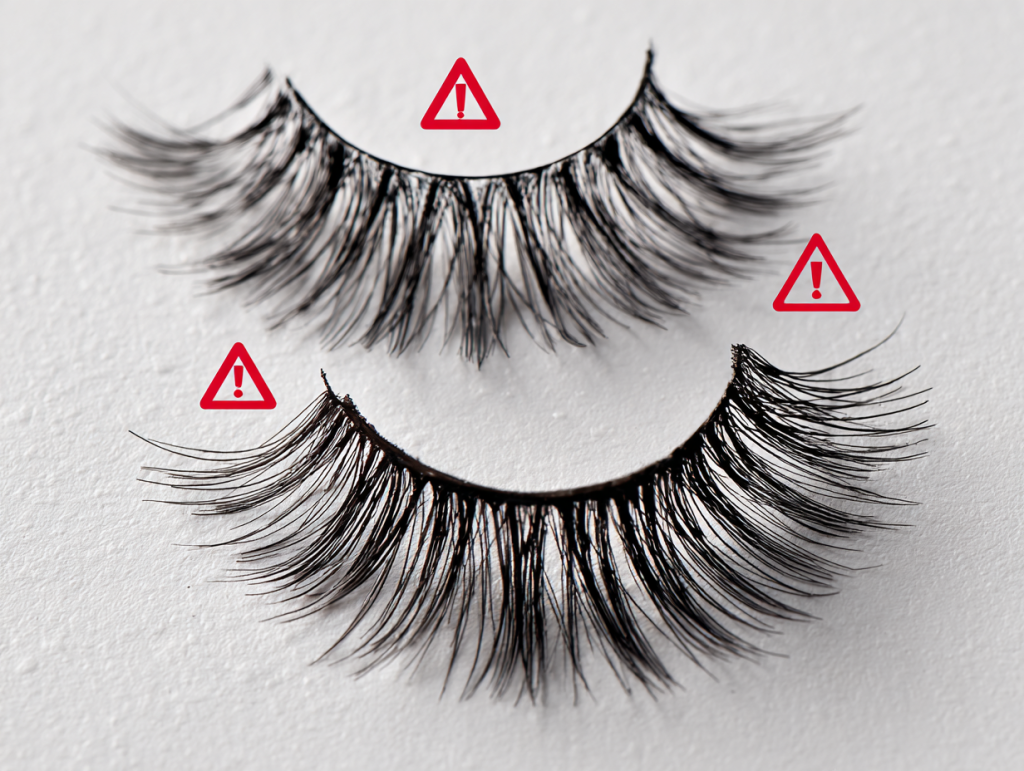
4 Common Mistakes to Avoid When Applying Lash Extensions at Home
Applying eyelash extensions at home can save time and money, but small mistakes can ruin the final look or harm your natural lashes. By avoiding these common errors, you’ll achieve flawless results and make your DIY lash extensions last longer without causing damage or discomfort.
1. Using too much adhesive
Excess glue can cause clumping, discomfort, and poor retention. For at-home lash extensions, dip only the base of each lash cluster into a minimal amount of adhesive. This ensures a secure bond without sticking multiple natural lashes together or creating a heavy, unnatural appearance.
2. Skipping lash preparation
Not cleansing your natural lashes properly leads to poor adhesion. Always clean and dry your lashes before applying DIY lash extensions. Removing oils and debris ensures the glue bonds effectively, preventing extensions from sliding off prematurely or causing uneven, messy application.
3. Placing lashes on the skin
Attaching temporary lash extensions directly to the eyelid can irritate the skin and feel uncomfortable. Instead, place lashes slightly above your natural lash line to mimic professional results and allow natural movement, reducing the risk of infection or lash loss.
4. Overlapping or misaligning lashes
Incorrect placement, such as overlapping clusters, creates uneven, tangled results. When applying DIY lash extensions, isolate each section and carefully align clusters. Proper spacing avoids sticking lashes together and gives you a lightweight, natural finish that lasts longer.
4 Tips to Make Your Lashes Last Longer
To enjoy your at-home lash extensions for as long as possible, you need more than a perfect application. Proper aftercare and daily habits help maintain curl, prevent premature fallout, and keep your natural lashes healthy. Follow these expert tips to maximize the lifespan of your DIY lash extensions.
1. Avoid water and steam in the first 24 hours
Freshly applied DIY lash extensions need time to fully cure. Exposure to water, steam, or sweat too soon can weaken the adhesive bond. Keep your lashes dry for the first 24 hours to ensure strong, long-lasting attachment and reduce the need for frequent touch-ups.
2. Sleep on your back or side
Sleeping face-down can bend or dislodge your temporary lash extensions. To maintain their shape, sleep on your back or side. Using a silk pillowcase also minimizes friction, helping your at-home lashes stay intact and looking salon-fresh for longer.
3. Clean lashes gently
Natural oils and makeup residue can break down lash adhesive. Use a lash-safe cleanser and a soft brush to clean your DIY lash extensions. Avoid rubbing or pulling, which can damage both the extensions and your natural lashes, shortening their lifespan.
4. Avoid oil-based products
Oil-based makeup removers, eyeliners, and skincare products weaken the glue used in at-home lash extensions. Switch to water-based formulas to preserve adhesion and prevent extensions from slipping off prematurely. This small change can significantly extend your lash retention.
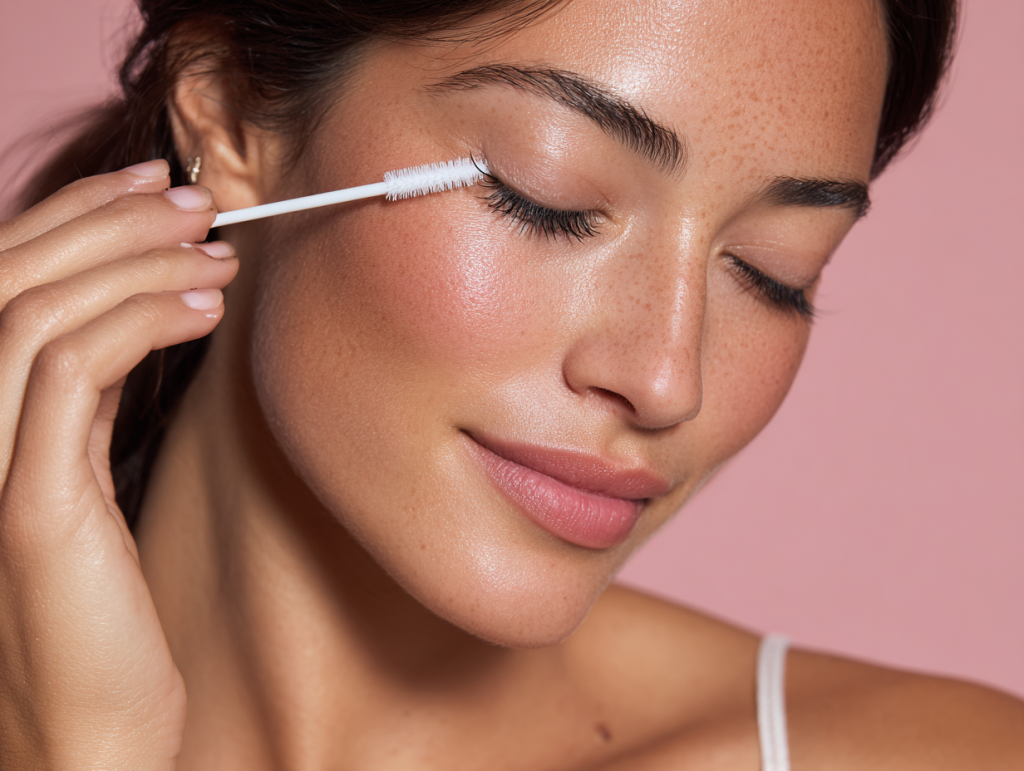
Strip Lashes vs. Extensions: Which Works Best at Home?
When enhancing your look at home, many beauty lovers debate between strip lashes and at-home lash extensions. Both options create fuller lashes, but their application method, longevity, and natural feel differ. Understanding these differences helps you choose the right approach for your needs and skill level.
| Aspect | Strip Lashes | At-Home Lash Extensions |
| Application | Pre-made lash bands with temporary glue | Applying clusters or individual lashes directly to natural lashes |
| Skill Level | Easy, beginner-friendly | Requires more skill and technique |
| Longevity | Lasts for one day | Lasts up to two weeks |
| Look & Feel | Instant glam, less natural feel | More natural, fluttery finish |
| Reuse | Reusable but temporary | Semi-permanent solution |
| Best For | Quick, temporary glam for events | Everyday wear with longer retention |
| Pros | Easy to apply and remove | Long-lasting, salon-like results |
| Cons | Less natural, short duration | More time-consuming, needs practice |
Strip Lashes for Quick Glam
Strip lashes are pre-made lash bands applied with temporary glue. They’re ideal for beginners seeking instant results without commitment. While they’re reusable and easy to remove, they don’t last beyond a day and may feel less natural compared to DIY lash extensions.
- At-Home Lash Extensions for Long-Lasting Results
Unlike strips, eyelash extensions at home involve applying clusters or individual lashes directly to your natural ones. With proper technique, they last up to two weeks, offering a semi-permanent solution with a more natural, fluttery look. They require more skill but provide better durability.
- Choosing the Right Option
If you want fast, temporary glam for events, strip lashes are perfect. For everyday wear and longer retention, DIY lash extensions offer a salon-like finish without frequent reapplication. Your choice depends on time, comfort, and how long you want your lashes to last.
FAQ
Are at-home lash extensions safe?
Yes, at-home lash extensions are generally safe when applied correctly using high-quality products. It’s essential to follow instructions, use a safe adhesive designed for DIY use, and avoid contact with your eyes. Beginners should start with temporary lash extensions or clusters for easier, safer application.
Explain how to apply cluster lashes at home?
Applying cluster lashes is easier than you think. Here’s how to apply cluster lashes: start by choosing the right cluster size, dip the base in lash glue, and gently place it under your natural lashes for a seamless look. Many DIY lash extension kits include cluster options for beginners.
How long do DIY lash extensions last?
DIY lash extensions can last anywhere from a few days to up to two weeks, depending on the quality of the kit, adhesive, and aftercare. Proper cleaning, avoiding oil-based products, and gentle handling help maximize the retention of your at-home lash extensions.
What tools do I need for at-home extensions?
To apply eyelash extensions at home, you’ll need an at-home lash extension kit, which typically includes lash clusters or individuals, lash tweezers, adhesive, a lash applicator, and sometimes a sealant. Having a magnifying mirror and good lighting makes the DIY process safer and more precise.
Can I damage my natural lashes with at-home kits?
Improper use of DIY lash extensions can lead to lash breakage or loss. To protect your natural lashes, avoid applying extensions that are too heavy, never pull them off, and use a gentle adhesive remover. With proper technique, at-home lash extensions do not harm natural lashes.



